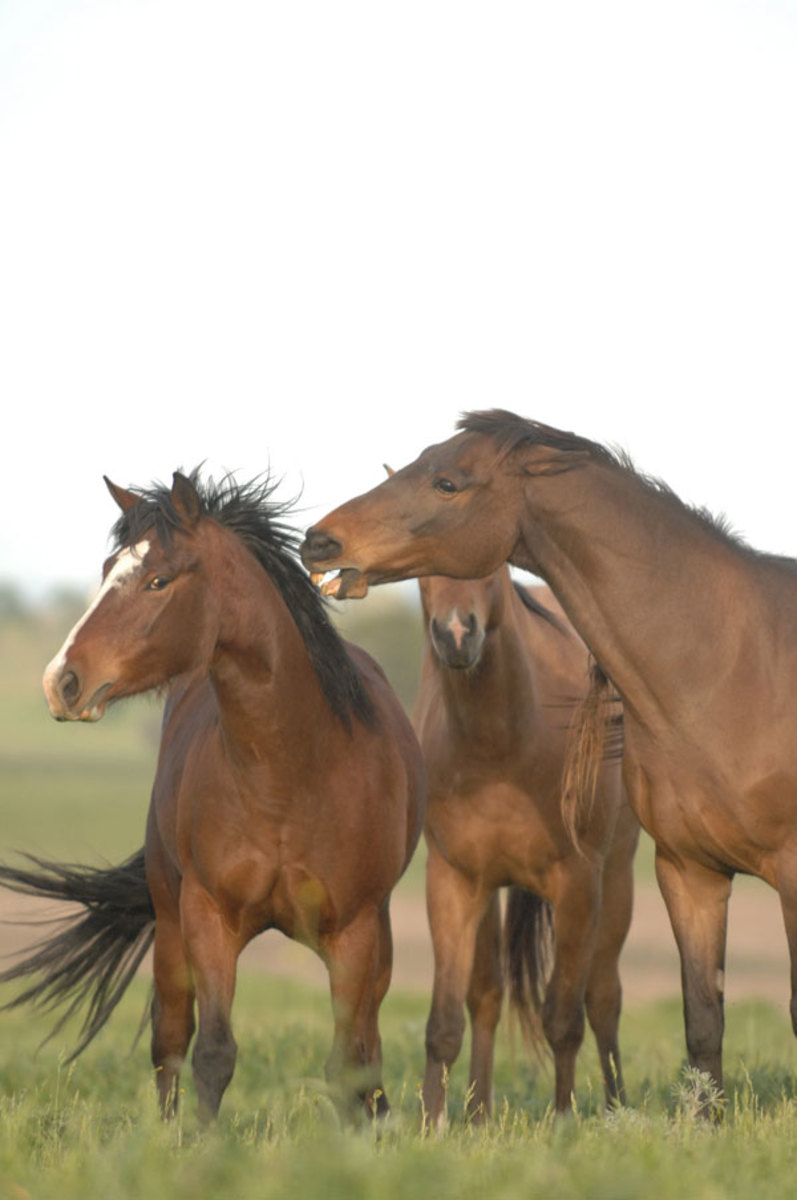Yikes! The big chestnut lunges at the smaller black gelding, ears pinned, teeth bared. The black stands his ground, bracing his legs and preparing for battle.
Two handsome heads dart in and around as the pair feint and dodge, seeking an opening. Necks snake and twist, muscles bulge, manes fly.
Dust rises from their scrambling feet.
It’s an awesome display of fierceness and power.
“Brego! Redford! Knock it off!”

[RELATED: What to do when your horse bullies *you*.]
They stop, but not because of my command. Their little drama has run its course, so now they stand quietly. Complacent, even.
I marvel to think that, in the nine months or so since the big guy, Redford, has been at my place, neither gelding has sustained as much as a scratch. Their antics are all for show.
Their routine seems as choreographed and ritualized as kabuki theatre.
Redford’s owner calls it “face fighting.”
The skirmishes happen just before feeding time, twice a day. At other times, the two of them chill together, body language relaxed, tails swishing.
“OK, you he-men,” I call out. “Come get your grub.”
[RELATED: How to stop under-saddle aggression in horses.]
As they walk into their run-in stalls to eat, they may menace each other one more time for good measure, flaring their nostrils as they flip their heads in each other’s direction.
Are you lookin’ at ME?!
I’m lucky these two geldings are paper tigers. Genuine pasture aggression (see photo), especially at mealtime, is a common problem that can result in real injuries.
Causes include protectiveness over resources (such as food or shelter), jealousy over favored pasture mates, or simple fear (of being crowded, say, by a newcomer).
Are your horses refusing to “play nice”? For tips on dealing with pasture bullies, check out the links below.
Because the last thing we need is another way for our horses to get hurt.






